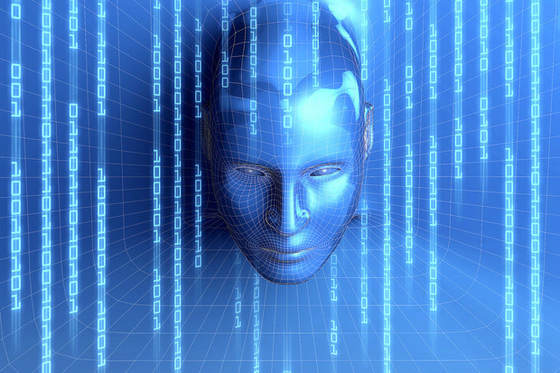|
Overview Recently I had a couple of very insightful conversations with some people, over drinks or coffee. We talked about A.I. systems and how they can pose a threat to society. The funny thing is that none of these people were A.I. experts, yet they had a very mature perspective on the topic. This lead me to believe that if non-experts have such concerns about A.I. then perhaps it’s not as niche a topic as it seemed. BTW, the dangers they pinpointed had nothing to do with robots taking over the world through some Hollywood-like scenario, but were far more subtle, just like A.I. itself. Also, they are not about how A.I. can hurt us sometime in the future but how its dangers have already started to manifest. So, I thought about this topic some more, going beyond the generic and quite vague warnings that some individuals have shared with the world over interviews. The main dangers I’ve identified through this quest are the following:
Interestingly, all of these have more to do with us, as people, rather than the adaptive code that powers these artificial mental processes we call A.I. Over-reliance on A.I. Let’s start with the most obvious pitfall, over-reliance on this new tech. In a way, this is actually happening to some extent, since many of us use A.I. even without realizing it and have come to depend on it. Pretty much every system that runs on a smart phone that makes the device “smart” is something to watch out for. From virtual assistants to adaptive home screens, to social chatbots, these are A.I. systems that we may get used to so much that we won’t be able to do without. Personally I don’t use any of these, but as the various operating systems evolve, they may not leave users a choice when it comes to the use of A.I. in them. Degradation of Soft Skills Soft skills may be something many people talk about and even more have come to value, especially in the workplace. However, with A.I. becoming more and more of a smooth interface for us (e.g. with customer service bots), we may not be as motivated to cultivate these skills. This inevitably leads to their degradation, along with the atrophy of related mental faculties, such as creativity and intuition. After all, if an A.I. can provide us with viable solutions to problems, how can we feel the need to think outside-the-box in order to find them? And if an A.I. can make connecting with others online very easy, why would someone opt for face-to-face connections instead (unless their job dictates that)? Bugs in Automated Processes Automated processes may seem enticing through the abstraction they offer, but they are far from perfect. Even the most refined A.I. system may have some hidden issues under the hood, among its numerous hidden layers. Just because it can automate a process, it doesn't mean that there are no hidden biases in its functionality, or some (noticeably) wrong conclusions from time to time. This is natural, since every system is bound to fail at times. The problem is that if an A.I. system fails, we may not be able to correct it, while in some cases even perceiving its bug may be a hard task, let alone proving it to others. Lack of Direct Experience of the World (VR and AR) This is probably a bit futuristic, since if you live in a city outside the tech bubble (e.g. the West Coast of the US), there are plenty of opportunities for direct experience still. However, as technologies like virtual reality (VR) and augmented reality (AR) become cheaper and more commercially viable, they are bound to become the go-to interface for the world, e.g. through “tourism” apps or virtual “museums.” Although these technologies would be useful, particularly for people not having easy access to the rest of the world, there is no doubt that they are bound to be abused, resulting to some serious social problems, bringing about further societal fragmentation. Blind Faith in A.I. Tech This is probably the worst danger of A.I., which may seem similar to the first one mentioned, though it is more subtle and more sinister. The idea is that some people become very passionate about the merits of A.I. and quite defensive about their views. Their stance on the matter is eerily similar to some religious zealots, though the “prophets” of these A.I. movements may seem level-headed and detached. However, even they often fail to hide their borderline obsession with their ideology, whereby A.I. is deified. It’s one thing speculating about a future society where A.I. may have an administrative role in managing resources, and a completely different thing believing that A.I. will enter our lives and solve all our problems, like some nurturing alien god of sorts. An Intelligent Approach to All This Not all is doom and gloom, however. Identifying the dangers of A.I. is a good first step towards dealing with them. An intelligent way to do that is first to take responsibility for the whole matter. It’s not A.I.’s fault that these dangers come about. Just like every technology we've developed, A.I. can be used in different ways. If a car causes thousands of people to die every year it’s not the car’s fault. Also, just like a car was built to enrich our lives, A.I.’s development has similar motives. So, if we see it as an auxiliary technology that can help us make certain processes more efficient, rather than a panacea, we have a good chance of co-existing with it, without risking our individual and social integrity.
0 Comments
Your comment will be posted after it is approved.
Leave a Reply. |
Zacharias Voulgaris, PhDPassionate data scientist with a foxy approach to technology, particularly related to A.I. Archives
April 2024
Categories
All
|

 RSS Feed
RSS Feed